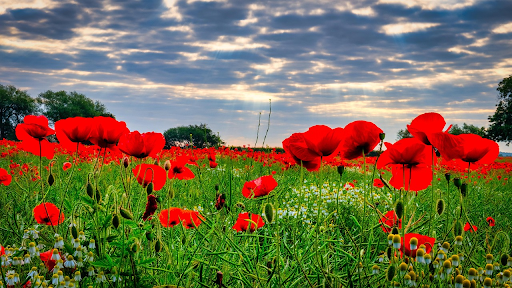by Tony Keene
Veterans Affairs tried a new test ad campaign for Remembrance Day in 2018, which left many of the test subjects dazed and confused.
That’s because there was a lot wrong with it. In fact, it was all wrong. And not only the ads; there’s a lot wrong with Remembrance Day itself.
The First World War, a pointless slaughter, has been over for a century, but the mythology to justify it persists. Millions died (60,000 in our uniform) in a protracted horror that had no territorial, or moral reason, but was largely about ego and national pride. The bulk of our soldiers in that conflict were not even Canadians, but largely British men who had come here looking for work. It gave them exactly what they needed: three hots and a cot, and a ticket home.
Those who came home couldn’t face that it had been for nothing, except to create chaos, destroy entire nations and presage an apocalyptic pandemic. They conjured myths and rituals of righteousness, fraught with maudlin Edwardian sentiment and Christian symbology, which remain almost unchanged to this day.
More than three-quarters of a century after the end of the Second World War, we are still using “O Valiant Hearts”, Laurence Binyon’s lachrymose “To the Fallen” and John McCrae’s virile war cry “In Flanders Fields”.
Unpack them, and see what they really mean.
“O Valiant Hearts” is a Christian hymn. It contains the following lines: “Your all you gave. To save Mankind; yourselves you scorned to save.”
This embodies perhaps the most enduring myth about soldiers. The idea that they are self-sacrificial, that they go to war willing to get killed is, on the face of it, ludicrous. Personal survival is the foremost concern of all, whether in a horrific war, or on a dangerous peace-support operation. Everyone wants to come home in one piece.
Self-sacrifice is what Christianity is all about, and it is why Christian prayer, Bible readings and sermons make up much of these ceremonies, except in major centres. The Royal Canadian Legion, which runs it almost everywhere, has brainwashed generations with it. In a society where Christmas is mainly about Santa, and Easter is about bunnies and chocolate, (bad as some might think that to be) we have been persuaded that it is impossible to mark Remembrance Day without a white cross and a preacher.
And this excludes and discriminates against a great many of our veterans who are not Christian.
The main text is almost always the Book of John: “Greater Love hath no Man than this, that he lay down his life for his friends.” It’s irrelevant to military service and death in war.
Think on it. We even had a veteran Sikh as Minister of National Defence a few years ago. The Forces are one of the most, if not the most, diverse military organizations on Earth. Yet this day, in most communities, is solidly, and often exclusively, Christian.
We must remember those who died, because we sent them to die. We must remember our veterans, especially those bearing wounds both visible and invisible. They number in the hundreds of thousands, and we will be caring for some of them until children not yet born are grandparents. They don’t want our thanks, but they need our help.
Our soldiers did not give us our freedoms, and they do not defend them. Our freedoms were not won in battle, but on picket lines, in the courtroom and on the university campus, and in our Parliament and legislatures.
Those freedoms came under threat in October 1970, when the cops got carte blanche to round up anyone who had looked at them sideways. Did the Forces come to the rescue? Of course not, they were too busy backing up the cops. And if it ever happens again, they’ll be right there making sure you do as you are told.
That’s what soldiers do. They serve the government, which realistically is the only entity that can take our freedoms away from us.
As for the Binyon poem, it was written in 1914, before the slaughter really got going, and today we recite a few lines of it as the Act of Remembrance. The poem itself is an over-the-top orgy of Edwardian twaddle. And it’s really about England, not Canada.
http://www.greatwar.co.uk/poems/laurence-binyon-for-the-fallen.htm
Then there’s “In Flanders Fields.” It is not a lament on the horrors of war, it is a battle cry for the slaughter to continue.
“Take up our quarrel with the foe; to you with failing hands we throw the torch.”
McRae was not asking us to honour the Fallen, but urging those not in uniform to get with the program, pick up a gun and get killed as well. The war was in full flood when he wrote it; it is a recruiting pitch. It’s nothing else.
It’s time for a new Remembrance Day, a secular and inclusive observance that, while not forgetting those wars and those soldiers, deals with their memory alongside an understanding of what military service is really like, both then and today.
Remembrance Day is for everyone. It is not just for men, whites, or the adherents of one religion. It’s time to take this day back from the failing organization which has had a death grip on it since the 1920s.
We need a new secular and inclusive model to recognize the sacrifices of today’s veterans, without abandoning the meaningful traditions of the past.


That piece was simply fabulous, Tony! No more to be said.